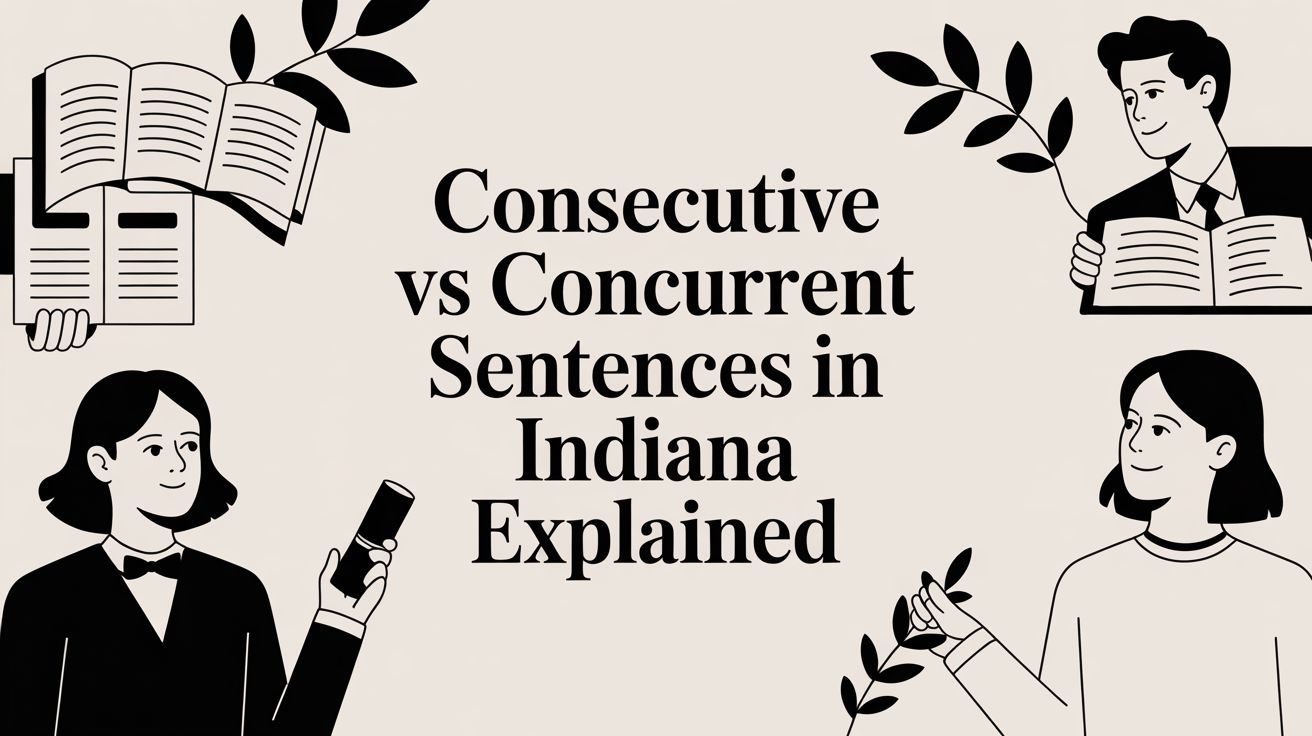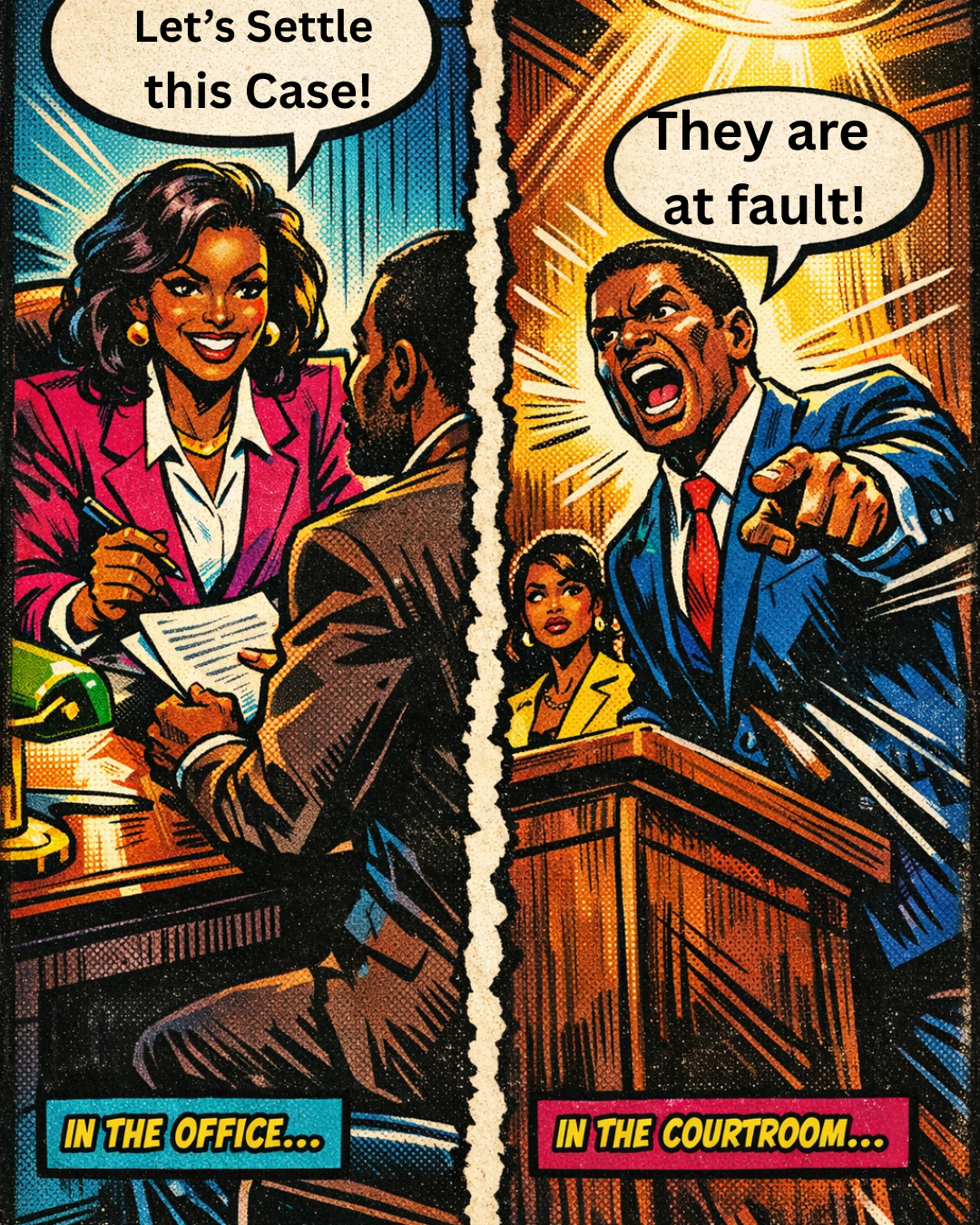What Is a Pirtle Advisement in Indiana?
Your Defense Against Police Searches

The police are demanding to search your car, your home, or your phone. You're in custody, scared, and unsure of your rights. This is exactly when Indiana's Pirtle advisement becomes your legal shield against aggressive law enforcement tactics.
If you've never heard of a Pirtle advisement, you're not alone, but you need to understand this critical protection. This Indiana-specific legal safeguard could be the difference between evidence being thrown out of court and you facing serious criminal charges.
The Legal Foundation: Your Constitutional Shield
A Pirtle advisement is a mandatory requirement under Indiana law that forces police officers to inform individuals in custody of their right to consult with an attorney before consenting to any search. This isn't some optional courtesy, it's the law, established by the Indiana Supreme Court in the landmark case Pirtle v. State.
This protection stems directly from Article 1, Section 11 of the Indiana Constitution, which provides stronger protections against unreasonable searches and seizures than even federal law offers. Indiana recognized that when you're in police custody, the coercive atmosphere makes it nearly impossible to give truly "voluntary" consent to a search.
Here's the bottom line: If you're in custody and police want to search, they MUST tell you about your right to an attorney first.
When Police Must Give You a Pirtle Warning
The Pirtle advisement requirement kicks in when two specific conditions are met:
- You are in police custody - This means a reasonable person in your situation would believe they're under arrest or not free to leave
- Officers are requesting consent to search your home, vehicle, or other property
Don't let police play word games with you. "Custody" doesn't mean you have to be formally arrested or sitting in a jail cell. If you reasonably believe you can't leave, if police have drawn weapons, if multiple officers are surrounding you, or if they've told you to stay put, you're likely in custody.
Courts look at the totality of circumstances to determine custody. This includes factors like:
- The location of the encounter
- The number of officers present
- Whether weapons are displayed
- The tone and language used by officers
- Whether you've been told you're free to leave
What Searches Require Pirtle Advisements
Indiana law is clear: Pirtle warnings apply to "weighty intrusions" into your privacy. These include:
✓ Home Searches - Your residence is your castle, and police know it
✓ Vehicle Searches - Your car, truck, motorcycle, or RV
✓ Cell Phone Searches - Courts have recently extended Pirtle protections to digital devices
However, Pirtle does NOT apply to these minimal intrusions:
- Pat-downs or frisks
- Field sobriety tests
- DNA cheek swabs
- Drug Recognition Examinations (DREs)
Why does this matter? Because police will try to blur these lines. They might conduct a "pat-down" that turns into a full search, or claim they're just doing a "safety check" of your vehicle. Know your rights and demand they be respected.
Your Rights Under Pirtle: What Police Must Tell You
When a Pirtle warning is required, police must inform you of three crucial rights:
- The right to require a search warrant before any search of your residence, vehicle, or premises
- The right to refuse consent to any such search
- The right to consult with an attorney before giving consent to any search
This isn't a suggestion, it's mandatory. If police fail to give you this warning, any evidence they find becomes inadmissible in court, no matter how damaging it might be to your case.
Pirtle vs. Miranda: Understanding the Difference
Many people confuse Pirtle advisements with Miranda warnings, but they serve different purposes:
Miranda protects against self-incrimination during custodial interrogation, it's about what you say.
Pirtle protects against coercive consent to searches when you're in custody, it's about what police can search.
Here's what makes Pirtle even stronger: Under Indiana law, your right to counsel attaches immediately upon arrest, not just after formal charges are filed like under federal law. This gives you broader protection than you'd have in federal court.

What Happens When Police Violate Pirtle
When law enforcement fails to give a proper Pirtle advisement, the consequences are devastating for their case:
All evidence found during the search becomes inadmissible - This is called the "exclusionary rule," and it's absolute. Even if police find drugs, weapons, or other incriminating evidence, none of it can be used against you in court.
Any consent given is legally invalid - Even if you said "yes" to the search, that consent means nothing without a proper Pirtle advisement.
The burden is on the prosecution - The State must prove that you were properly advised of your Pirtle rights, that you understood them, and that you voluntarily waived your right to counsel.
Protecting Yourself: What You Should Do
If you find yourself in a situation where police want to search and you believe you're in custody, here's your action plan:
1. Ask directly: "Am I free to leave?" If the answer is no, you're likely in custody.
2. Demand your Pirtle rights: "I want to exercise my right to consult with an attorney before consenting to any search."
3. Never consent without legal counsel - Even if you believe you have nothing to hide, consenting to a search can lead to complications you never anticipated.
4. Document everything - If possible, remember the officers' names, badge numbers, and exactly what they said.
5. Contact an experienced criminal defense attorney immediately - Time is critical in these situations.
Common Police Tactics to Watch For
Law enforcement officers are trained in persuasion techniques designed to get you to waive your rights. Be aware of these tactics:
- Minimization: "It's just a quick look" or "We'll be done in a few minutes"
- False urgency: "We can get a warrant anyway, so you might as well consent"
- Implied threats: "Things will go easier for you if you cooperate"
- False promises: "If you have nothing to hide, this will clear everything up"
Remember: You are under NO obligation to make their job easier. Exercise your rights.
When Pirtle Violations Can Save Your Case
Pirtle violations aren't just technicalities: they're constitutional violations that can completely change the outcome of your case. Even in serious felony cases, courts have thrown out critical evidence because police failed to give proper Pirtle advisements.
This means cases that seemed hopeless can suddenly become winnable. Drug possession charges, weapon violations, and other serious crimes have been dismissed because law enforcement cut corners on Pirtle requirements.
Don't Face This Alone
Understanding your Pirtle rights is just the beginning. If you believe police violated your Pirtle rights during a search, you need aggressive legal representation that knows how to challenge these violations and get evidence suppressed.
The stakes are too high to go it alone. A skilled criminal defense attorney can investigate whether police followed proper procedures, file motions to suppress illegally obtained evidence, and fight to protect your constitutional rights.
Police count on people not knowing their rights. Don't let them count on you. Your freedom, your future, and your constitutional protections are worth fighting for.
If you're facing criminal charges and believe your Pirtle rights were violated, contact our office immediately. We'll review your case, identify any constitutional violations, and fight aggressively to protect your rights and your future.






















